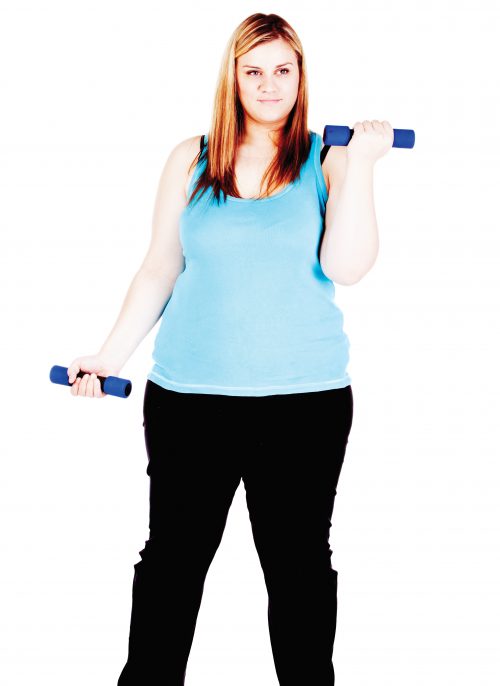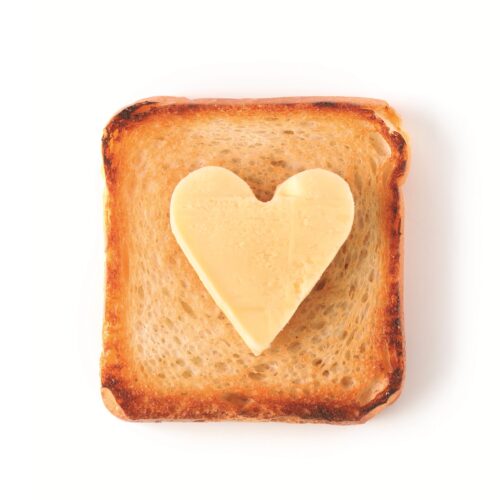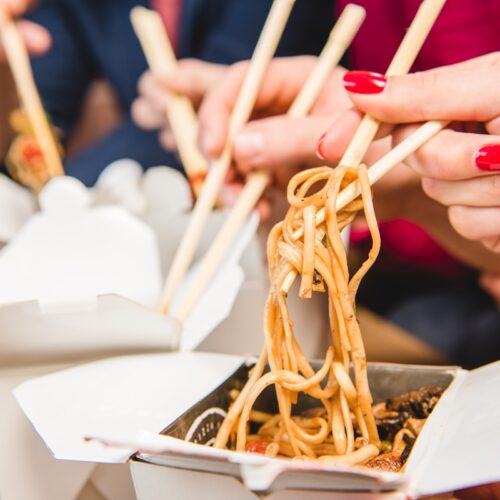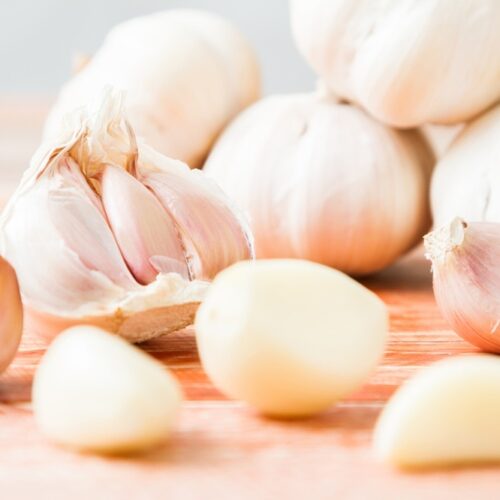
Despite your best efforts, are you still struggling to lose weight? Nutritionist Bronwen King suggests new approaches to help you reach your goals.
You go hard out at the gym, eat salads for lunch, bike at the weekend, yet still can’t lose weight. Or you start out well but can’t shift those last five kilos. Evidence is stacking up on just how complex weight loss is. There are many factors beyond what you eat and how much you exercise that get in the way of weight loss.
The top five things in your way and how to fix them:
1. Are your goals realistic?
Weight usually creeps on gradually, often unnoticed and, despite the fact that we gain it slowly, we expect to shift it easily. But our bodies don’t work that way. Historically, losing weight was not good for survival. Our caveman genes make us good at gaining weight (to survive dire environmental circumstances) but not so good at losing it (a survival disadvantage). Weight gained slowly is best lost slowly, for a number of reasons we are just starting to discover. Diets that promise rapid weight loss just set you up to fail. It’s possible to lose weight quickly (although it is a miserable process) but you will gain it all back, plus more, as soon as you return to old habits.
Best advice
Say no to dieting forever. Dieting is a battle against self, a see-saw between feast and famine, between gaining and losing weight. It is destined for failure and miserable to boot.
Change your goal from weight loss to health gain. Aim to become the healthiest version of you, and to stay that way for life. Weight loss will most likely happen, but it will be the by-product of health gain, not the main focus of your goal.
Replace the guilt of poor food choices with the pleasure of eating healthily. Identify habits that have contributed to your weight gain, then set achievable goals to change them. Start with an easy (low sacrifice) habit change and practice until the new behaviour becomes normal, eg. parking a block away from work. Then introduce another, and so on. Many small habit changes soon add up. Just remember to go slowly – too many changes too fast make it very tempting to give up and slip back into old routines.
Think ‘rest of life’. Don’t be in a hurry. It is better to lose 3kg in a year, and keep it off, than 10kg in three months, then regain it. Remember, life does not always go to plan – two steps forward, then one step back is a very normal pattern, and is not a reason to revert to old ways.
Prevent weight gain in the first place. Great in hindsight and, perhaps, it may be too late for you. But if you have children, it is not too late for them. Getting into healthy habits from an early age will greatly benefit your family.
2. Is HOW you eat working against you?
Wolfing down food, eating on the run, and dining in front of the television has more influence on your health and weight than you may think. Slowing down and tuning in to your eating will help you get more pleasure and satisfaction from less food. This, in turn, will help you achieve a healthier weight. It takes 20 minutes for the body to register fullness when eating. So, if you eat fast, you are likely to eat more than you need before the messages to stop eating click in. Eating on the run has other downsides – snack food is less likely to be nutritious, less likely to be remembered and less likely to fill you up.
Best advice
Eat mindfully. Sit at a table to eat; minimise distractions like television or other screens; eat slowly and chew until food is liquid before swallowing. Focus on the enjoyable sensations in your mouth.
Stick to regular meals. If you need to snack, plan out what you will eat, make it healthy, put it on a plate and eat it mindfully.
Watch portion size. Remember the hand guide: meat no more than the size of your palm, and starchy foods (rice, pasta, bread and potato) no more than the size of your fist. Go mad with non-starchy vegetables.
3. Do you expect too much of exercise?
It can be depressing comparing kilojoules burned during activity with kilojoules found in foods you eat. Many people find themselves thinking, “Why bother running for an hour just so I can eat a couple of biscuits?” And, when after a few of weeks at the gym you are no slimmer, it is easy to lose enthusiasm. But exercise offers far more benefits than just burning a few kilojoules, and these benefits can have a large influence on your health and weight. Activity is a known mood lifter – many people believe it is even better than anti-depressants, and people who feel good about themselves are more likely to treat themselves with respect, which includes nourishing their bodies with healthy food. Activity also trains your muscles to use fat as a fuel source, making you better at burning fat.
Best advice
Consider exercise as a normal part of your life in the same way as cleaning your teeth. If you view it as an add-on, in order to lose weight, you will always end up disappointed.
Ditch the ‘health-halo’ effect. Going to the gym does not entitle you to that giant muffin and latte bowl.
Think of the health gains. A better mood, better posture, stronger body, and more able to live independently as you age.
Choose a variety of activities you enjoy and stop measuring. If you find something you enjoy, it takes less self-discipline to do it regularly. And when you’re focussed on enjoying your activity instead of the number on the scales, exercise is a whole lot more fun.
4. Is your gut bacteria working for or against you?
Gut health is a hot research topic right now. Given that our microorganisms outnumber the cells in our body three to one, scientists are starting to see that they exercise a fair bit of control. Evidence from studies on rodents shows that the type of bacteria in our gut has a huge influence on how many kilojoules we extract from our food. A study published recently in the journal Nature gave some insight into a possible reason why, despite considerable efforts to lose weight, few people maintain weight loss long term. And it is all about gut microbes. The study, using mice, showed that it takes at least six months for our microbial population to respond significantly to changes in diet and if we revert to old habits within this timeframe, the microbes are ready and waiting to push us back to our old weight (plus more). This could also explain why a slim person who gains weight on a cruise can lose it quickly if they revert to their normal habits upon return. The person’s slimness-promoting microbes have not changed during the time of feasting, so bring them back to slimness when normal eating is resumed.
Best advice
Eat foods that encourage growth of healthy gut bacteria (see below).
Maintain any healthy habit changes for at least six months (preferably for life!)
Encourage a healthy population of gut bacteria
Include prebiotic-rich foods daily – these promote the growth of healthy bacteria, eg:
- Vegetables – asparagus, leeks, onion, cabbage, artichokes and garlic
- Fruit – especially bananas and apples
- Legumes – lentils, chickpeas, kidney beans
- Whole grains – oat bran and oats
Include probiotic foods as much as possible – these contain healthy bacteria, eg:
- Miso soup
- Pickled vegetables such as sauerkraut and kimchi (Korean pickled cabbage)
- Probiotic yoghurt and kefir
- Kombucha (fermented tea drink)
Minimise foods that work against gut health, eg:
- Cakes
- Biscuits
- Chips
- Pastries
- Sugary foods
- Soft drinks
- Confectionery
See The truth about fermented foods for more information.
5. Are you getting enough sleep and relaxation?
Not enough sleep and too much stress can play havoc with our hunger hormones. Grehlin (the hormone that makes us feel hungry) and leptin (the hormone that makes us feel full) work together in healthy individuals to ensure our hunger meets our kilojoule needs. Not enough sleep can throw out their balance – grehlin increases and leptin decreases, driving us to eat more than we need. Since more hours awake mean more hours to eat, this creates a perfect storm for weight gain. Stress has similar effects on hunger hormones, plus it produces the hormone cortisol, which tells the body to hold on to fat stores (another caveman survival mechanism).
Best advice
Aim for at least 7.5 hours sleep per night. Avoid backlit screens, such as smartphones and computers, for at least two hours before bed time, and sleep in a darkened room to promote better sleep.
Minimise stress. Identify and address the things in life that are causing you stress. Deal to stress with exercise, yoga, meditation or other relaxation techniques. A couple of minutes spent breathing deeply into the pit of your stomach with your eyes closed can be very calming, particularly before stressful events.
Get off your plateau – lose those last few kilos
Weight is not lost evenly – it is lost in small steps, followed by plateaus. The longer you take to gain weight, the shorter the steps and the longer the plateaus. As you get smaller, you need fewer kilojoules to maintain your weight. This means you have to up the ante if you want weight loss to continue. As much as you may hate them, plateaus are normal. They are needed by the body to become used to the newer, slimmer, you. Celebrate your plateaus – the longer you are there, the more stable your new weight becomes.
Strategies
Check what you are eating. Have old habits started to creep back? Strengthen new habits and introduce some more healthy changes.
Check your exercise. As you get fitter, you need to work harder and go longer for the same effect.
Check what you drink. Alcohol and sweet drinks are big contributors to weight gain.
Work on stress management and getting enough sleep.
Article sources and references
- Thaiss CA et al. 2016. Persistent microbiome alterations modulate the rate of post-dieting weight regain. Nature 540:544-51https://www.ncbi.nlm.nih.gov/pubmed/27906159
- Wansink B. 2010. Mindless eating. New York: Bantam Books
www.healthyfood.com











